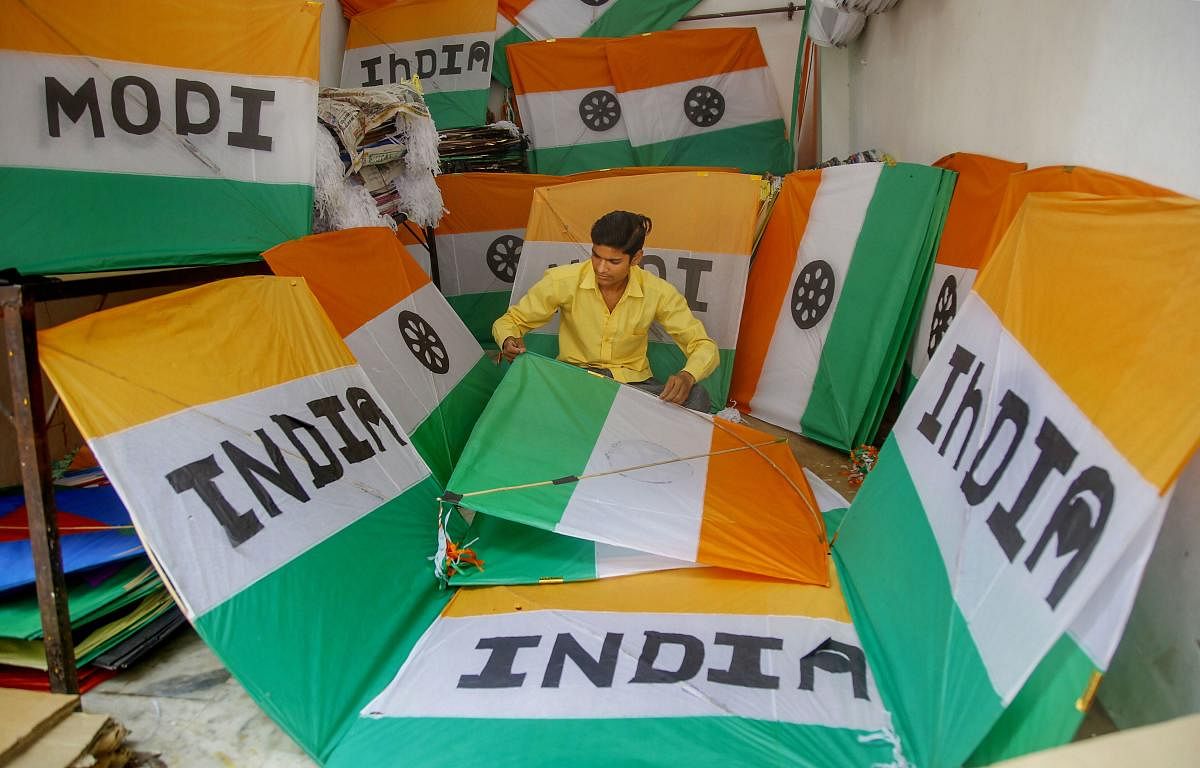
The Gorkha community living in Jammu is upbeat since the government scrapped provisions of Article 370 as they feel they will now get permanent resident certificates which will allow their children to apply for jobs and seats in professional courses of their choice.
Their ancestors had shifted to Jammu and Kashmir from Nepal decades ago to fight alongside the erstwhile Dogra Army and even now most families boasted of at least one war veteran, but they say they had been facing several challenges.
While the members are allowed to vote in the assembly and local bodies elections, since three decades they have been demanding permanent residentship, representation in legislative council by nomination, scheduled tribe status and five per cent reservation in Sainik schools for their children.
"The decision of the central government came as a big relief for us as our dream is finally getting fulfilled after a long and painful wait," Sher Bahadur Rana, 81, a war veteran, told PTI at his residence in the thickly populated Gorkha colony near Bahu Fort here.
Over 2,000 community members are living in this colony where the houses are built close to each other, only separated by narrow lanes.
Five hundred Gorkha families, settled in different parts of Jammu and Kashmir, were allotted three 'marlas' (816.25 square foot) of land per family by the state government in 1960.
They still speak in their mother tongue, Nepali, and hope that one day it will be included in the eighth schedule of the Constitution.
"I was not sure that I would hear this good news in my lifetime... But I still don't believe that our miseries will end," the octogenarian said in a choked voice as he recalled the contribution of his forefathers who came here from Nepal on the request of the Dogra dynasty which enjoyed friendly ties with the king of Nepal.
Rana said he was born in Srinagar in the royal palace of the last Dogra ruler Maharaja Hari Singh as his father was in his Army and posted there.
"We relocated to Jammu in 1947 after the attack by Pakistani raiders. My father had gone to fight them," he said.
The Army veteran said he later also joined the Indian Army and retired from the service in 1978. Later his son followed in his footsteps and served the country.
He said in 1990 many Gorkhas had "left Kashmir due to the rise in terrorism there".
Thanking Prime Minister Narendra Modi for the historic decision, he said "our ancestors came as a fighting unit for the Dogra ruler and settled here. I have never been to Nepal, neither have most of the others from my community. It pains me when we are told you do not belong to this place".
He said denial of the permanent citizenship pushed the community to backwardness as "our children" got deprived of government jobs, seats in professional colleges. They also could not buy land to live separately.
Kishan Bahadur (70), also an ex-serviceman, said the development has sparked a ray of hope among the community that the future of their children was safe in the country.
"If we return to Nepal today, nobody is going to take us back as we don't know the place and the people there. We have been here for generations and have faced every situation with determination," said Bahadur, who had taken part in three wars -- the 1962 war against China and the 1965 and 1971 wars against Pakistan.
He said his father Padam Bhadur had taken part in 1947 war, while his son Mann Bhadur joined the Army after the Kargil war was over.
Bahadur said that had the politicians from Kashmir "done justice with those living in the state for decades, such a thing had not happened. The history is witness to our sacrifices for the state and the country".
President of Jammu and Kashmir Gorkha Sabha, an organisation fighting for the upliftment of the community, Karuna Chatri, claimed that "95 per cent of over 500 families have at least one former soldier".
She said that from now on they are going to celebrate August 5, the day the Centre revoked provisions of Article 370, as a festival.
On the challenges faced by community members, Chatri said only a handful have permanent resident certificates, leaving their children to suffer.
"After the abrogation of the special status, now our children can get selected in government jobs as well," she said.
Gorkha Sabha youth president Manish Adhikari said his dream to don an Army uniform and follow in the footsteps of his father and brother remained unfulfilled.
"I passed the written test for Indian Air Force but was dropped because I could not produce the permanent resident certificate of Jammu and Kashmir," Adhikari, who is now running a fast food business, said.
"Its an irony that a talented sportsman from Jammu, Sagar Sahi, who was among the team which won a gold medal in fencing in the Commonwealth Games in Australia was denied a job in Jammu and Kashmir Police because he did not have a permanent resident certificate.
"He later joined the Army under sports category and is serving the country," he said, adding his brother Kishan Adhikari was denied a seat in an MBBS course and he later he had to join the Army Medical Corp.